-
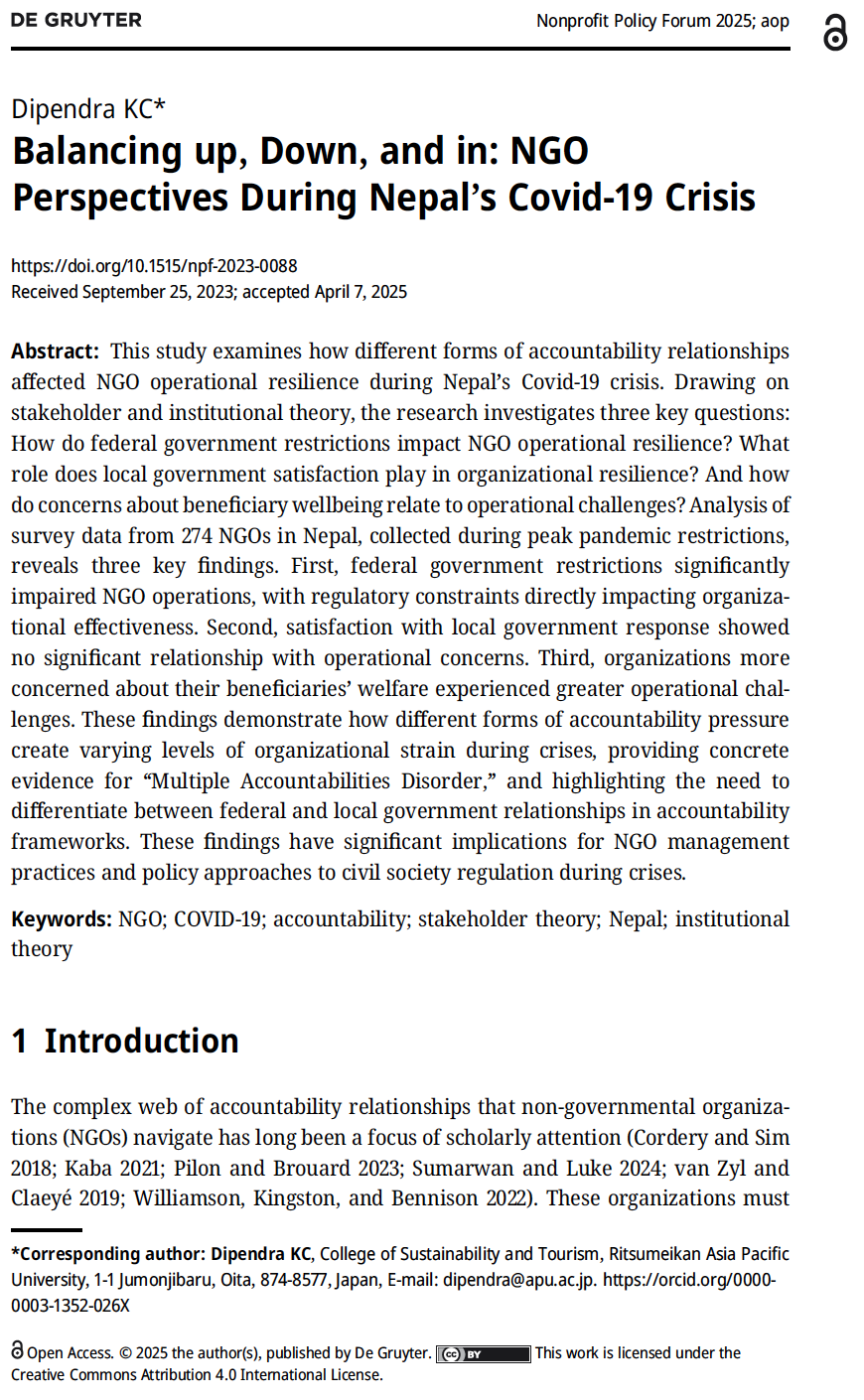
Balancing up, Down, and in: NGO Perspectives During Nepal’s Covid-19 Crisis
Published in Nonprofit Policy Forum, this study explores how varying forms of accountability relationships influenced the operational resilience of NGOs during Nepal’s Covid-19 crisis. Grounded in stakeholder and institutional theory, the research addresses three central questions: the impact of federal government restrictions on NGO operations, the effect of local government satisfaction on organizational resilience, and…
-
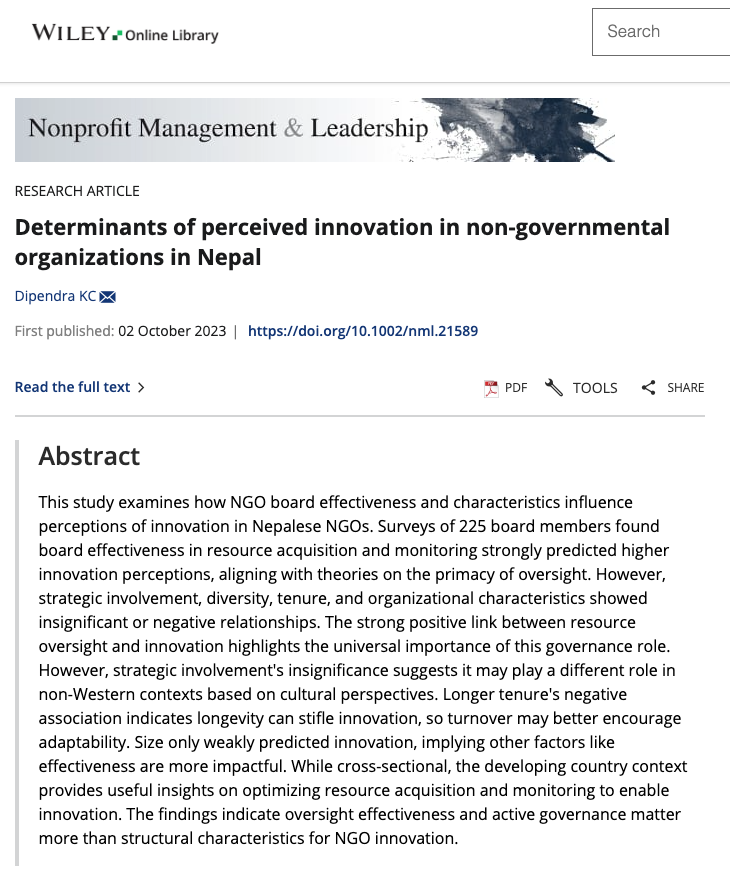
Cultivating an Innovation Imperative: Rethinking NGO Governance for a Changing Nepal
Nepal’s civil society, with over 60,000 NGOs, significantly impacts development in healthcare, education, and social justice. However, declining foreign aid and emerging market-based solutions threaten their traditional roles. This article emphasizes the need for innovative governance to enhance resource acquisition and oversight, urging NGOs to adapt and prioritize creativity to thrive in a changing environment.
-
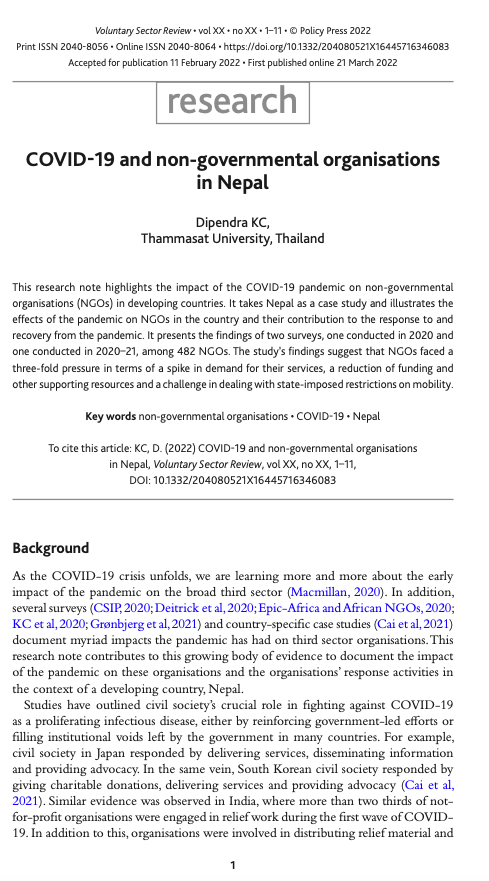
COVID-19 and non-governmental organisations in Nepal
This research note examines the effects of the COVID-19 pandemic on NGOs in Nepal, revealing how they encountered increased demand for services, decreased funding, and challenges from state restrictions. Based on surveys conducted among 482 NGOs in 2020 and 2020-21, it emphasizes their critical role in recovery efforts.
-
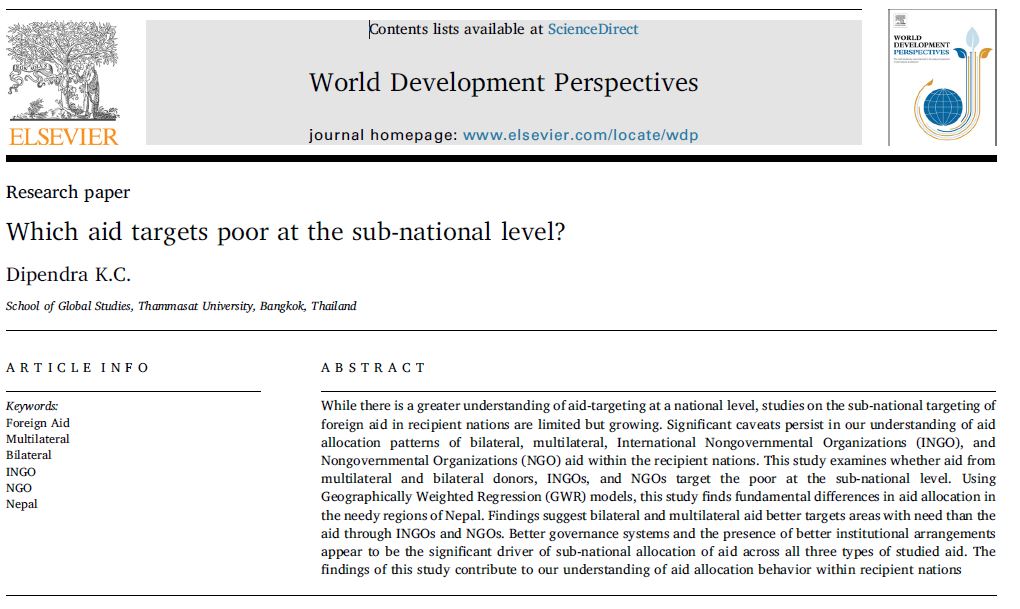
Which aid targets the poor at the sub-national level?
This study investigates sub-national targeting of foreign aid in Nepal, highlighting differences in allocation among bilateral, multilateral, INGO, and NGO aid. Using Geographically Weighted Regression models, it concludes that bilateral and multilateral aid more effectively reaches needy areas, with governance and institutional arrangements significantly influencing aid distribution.
-
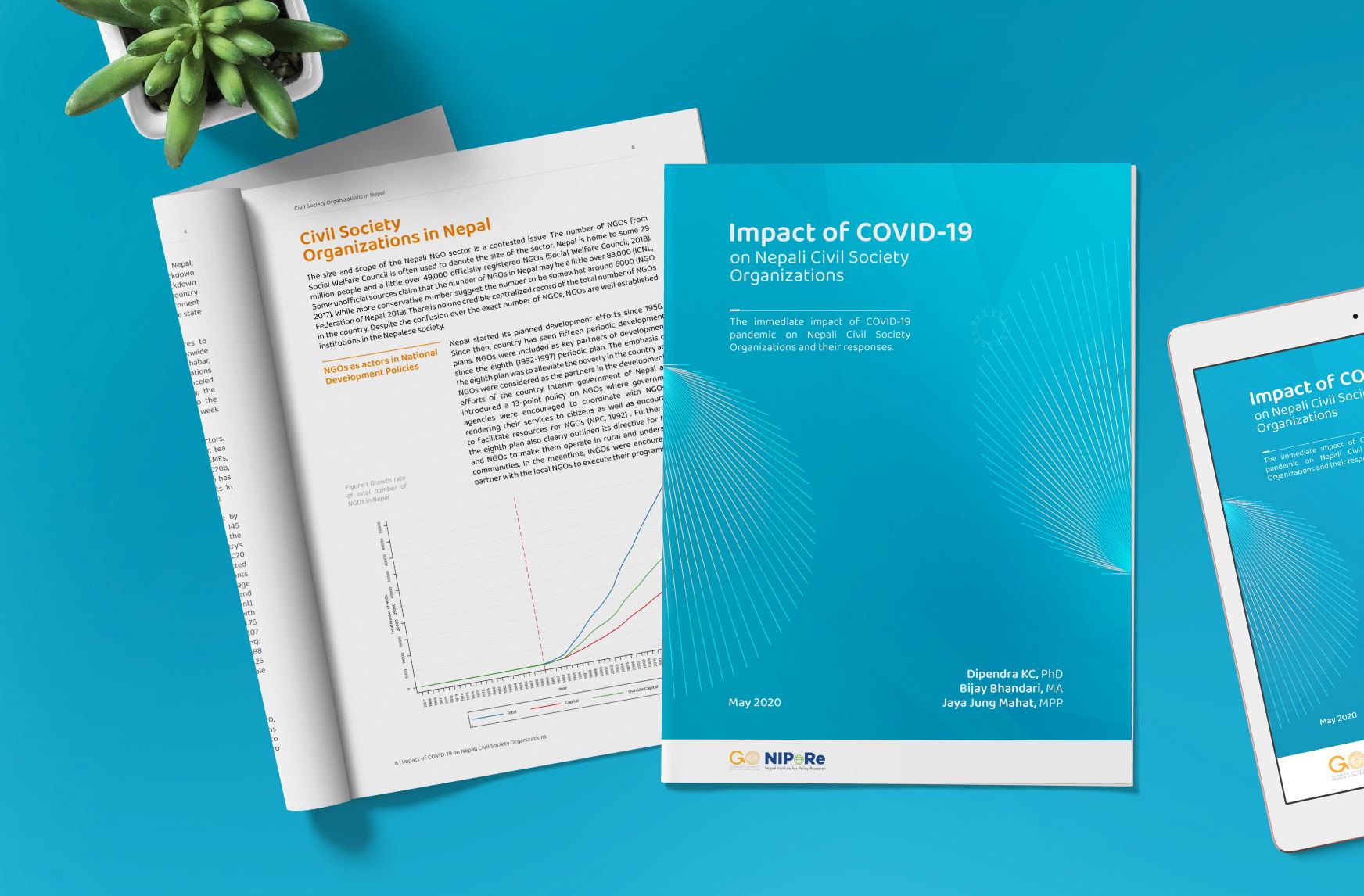
Impact of COVID-19 on Nepali CSOs
In April 2020, a nationwide study was initiated to assess the impact of COVID-19 on the capabilities of Civil Society Organizations (CSOs) in Nepal. Out of 488 invited, 235 organizations from various sectors participated, including NGOs, federations, and profit not distributing companies, representing diverse functional areas across all provinces.